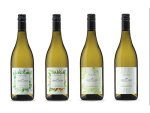The environment for transformational trade deals seems murky at best, according to international trade specialist and former diplomat Stephen Jacobi.
He says it was well known that the era of trade liberalisation was coming to an end and this is now borne out by the rise of right-wing parties in Europe and the US, and a march to nationalism and protectionism.
His comments match those of one of NZ’s top trade negotiators, Vangelis Vitalis, who noted recently that the golden weather of trade deals was ending and that the trade jungle was growing back.
Jacobi says despite the changing global environment, he doesn’t believe that NZ has completely exhausted the opportunities of negotiating other FTA’s. He points to the one currently being worked through with the UAE. He says other positives for NZ are countries wanting to join CPTTP and a move by Sri Lanka to join the Regional Comprehensive Economic Partnership Agreement (RCEP).
“Such a move by Sri Lanka would be a very welcome addition to our FTA’s,” he says.
But Jacobi says the present environment makes it harder for dairy, which is an integral part of the NZ economy because of the volumes of dairy exports. He says it’s already impacted with existing trade deals with the EU, Canada and Japan and the only real exception being the FTA with the UK, which offers tariff elimination within five years.
However, it should also be noted that for decades dairy has been the sticking point in most trade negotiations.
“We can’t get away from the importance of dairy in our economy,” says Jacobi. “So, if you want to get the numbers up in terms of exports, you must have dairy in that equation, which is why we can’t afford to do an FTA that doesn’t do anything at all on dairy.
“If you look at India, where we would like to have an FTA, they are not interested in one that includes dairy,” he says.
Jacobi says when it comes to FTA’s we need comprehensiveness, ambition and high quality, which is now something of a problem. He says a solution is to incrementally increase our trade profile and maximise the benefits that are available within existing FTA’s. It’s been said that as much as 40% of the benefits available in FTA’s are not taken up.
The other solution, says Jacobi, is to develop more companies of scale, such as Fonterra and Zespri, which can be big players internationally and grow sectors around them. He says NZ is well placed to cater for consumers in markets it supplies who are looking for quality foods with health benefits.
“What Fonterra is doing in this space is quite revolutionary; that links to the new generation of food,” he says.
He adds that our lean, grass-fed meat and high-quality horticultural products such as kiwifruit are all part of that mix as well. Despite all the changes and challenges, Jacobi believes that the quality protein that NZ produces will always have a place in our export profile.


















